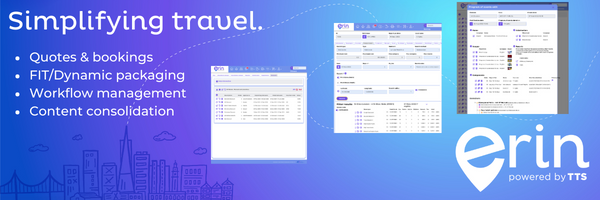Kicking the Can: How Long Can You Delay Upgrading Your Travel System?
In the world of travel reservations and management, the phrase “kicking the can down the road” takes on a whole new meaning. Every day, travel businesses (tour operators, villa specialists, and activity providers) delay upgrading their systems, hoping that their patchwork solutions will hold out just a little longer. But how far can you really keep kicking the can before it hits a dead end?

The Illusion of Buying Time
It’s easy to postpone change. Legacy systems may be clunky, require manual data entry and frustrate your team but they still “work” at least for now. You tell yourself, We’ll upgrade next year, We’ll review options after peak season, We’ll stick with what we know. But in the meantime, inefficiencies pile up, customer expectations rise and competitors adopt smarter, more automated solutions
The Hidden Costs of Delay
While you’re waiting for the “right time” to upgrade, what’s happening behind the scenes?
- Missed Bookings – Slow response times and manual processes mean lost sales to faster, more agile competitors.
- Data Entry Overload – Your team spends hours re-entering information instead of focusing on customer experience.
- Limited Scalability – When demand spikes, can your system keep up or does it crumble under pressure?
- Customer Frustration – Today’s travellers expect instant confirmation, seamless communication and a stress-free booking journey. Can your current setup deliver?
The Can Will Hit a Wall
Sooner or later, an outdated system stops being an inconvenience and starts being a liability. Whether it’s a system crash at the worst possible moment, an inability to integrate with new supplier technology or an exodus of frustrated staff, every delay increases risk.
Take Control Before the Can Controls You
The good news? You don’t have to wait until a system failure forces your hand. Upgrading to a modern travel reservations and management system, like Erin, can be a seamless process when planned properly. The best solutions:
✔️ Automate processes, reducing data entry and admin load.
✔️ Enhance customer experience, keeping you competitive in a fast-moving industry.
✔️ Improve stock and pricing management, helping you maximise revenue.
✔️ Scale effortlessly, so you’re prepared for both seasonal surges and long-term growth.
Stop Kicking. Start Moving Forward.
At some point, the can stops rolling. Instead of delaying the inevitable, why not take control of your operations today? A smoother, smarter and more efficient system isn’t just an upgrade, it’s the foundation for future success.
So, the question is: Are you still kicking the can or are you ready to pick it up and move forward?
Frequently Asked Questions
-
Why do travel businesses such as tour operators and villa specialists delay upgrading their travel reservation systems?
Many travel businesses delay system upgrades due to concerns about cost, disruption or the time investment involved. However, clinging to outdated, manual or patchwork systems often leads to inefficiencies, missed revenue opportunities and a poor customer experience. Delaying a technology upgrade in the travel industry can actually cost more in the long run.
-
What are the risks of continuing with outdated travel management software?
Relying on legacy travel systems puts businesses at risk of data loss, booking errors, compliance issues and missed integrations with modern platforms like OTAs, GDSs, and payment gateways. These risks grow over time, limiting a company’s ability to scale and compete effectively in the travel sector.
-
How can modern travel reservation platforms benefit tour operators and activity providers?
Modern travel software solutions streamline everything from quote creation and dynamic packaging to real-time inventory management, CRM integration and post-sale operations. For tour operators and activity providers, this means faster bookings, fewer errors, improved customer service and the ability to scale more efficiently.
-
When is the right time to upgrade your travel technology system?
The best time to upgrade your travel system is before operational issues start affecting your bottom line. If your team spends more time fixing problems than serving customers or you’re relying on spreadsheets and manual processes, it’s time to move to a more robust, future-proof solution.
-
What features should you look for in a modern travel reservation and management platform?
Look for a travel platform that offers:
- Dynamic packaging and tailor-made tour functionality
- Multi-channel inventory consolidation
- API link or integrated CRM and reporting tools
- Real-time pricing and availability
- Secure payment gateway integration
- API-first architecture for flexibility and scalability
These features are essential for staying competitive and delivering an exceptional customer experience.

